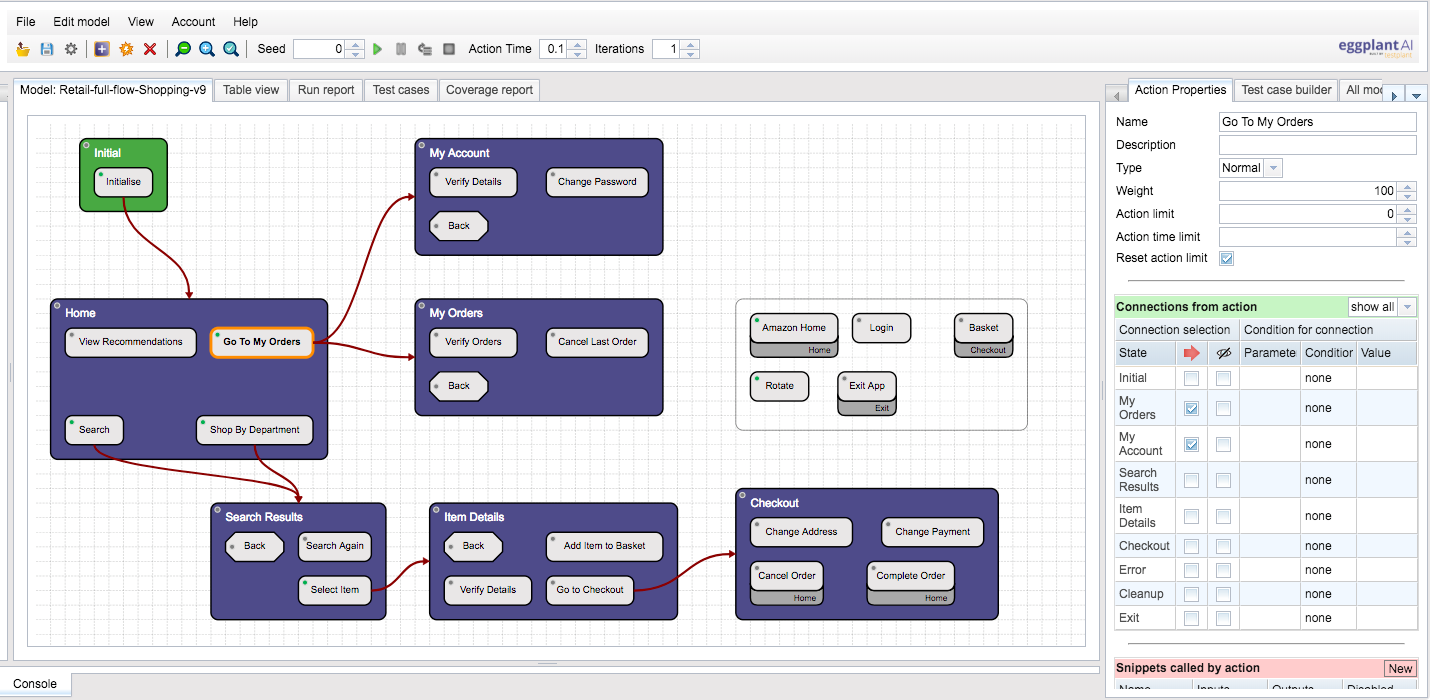Reliance on machine learning algorithms and other forms of artificial intelligence (AI) to not just run application tests at scale but actually construct them may be about to increase.
The latest release of a Digital Automation Intelligence (DAI) Suite from Eggplant enhances the AI capabilities baked into the testing tool to include the capture and analysis of runtime performance data in a way that enables a testing process to “learn” where potential bottlenecks are hidden. Eggplant CTO Antony Edwards said DAI Suite will then suggest a series of tests designed to make it easier for developers to identify the root cause of the problem.
The goal is to reduce reliance on humans to construct formulaic tests, which Edwards said often limits the rate at which applications can be deployed and updated.

Other new capabilities being added to DAI Suite include enhancements to Eggplant Functional, which now takes advantage of AI to discover the elements of a graphical user interface (GUI) to automatically populate the automation logic in an Eggplant AI application model. Eggplant Performance, a load and performance testing product, has been integrated with JMeter, an open source performance testing framework, to enable developers and testers to reuse JMeter assets as well as creating load test scripts. Additionally, new real-time key performance indicators (KPIs) can be employed to shorten the feedback loop between testing and analysis.
Both Eggplant Manager and Eggplant Automation Cloud are now 10 times faster and provide higher levels of testing scalability, according to the company.
Edwards noted that, in general, application testing is too formulaic. The end goal should be on identifying the best way to delight an end user rather than merely trying to check a compliance box. That requires being able to test more application use cases at scale without slowing down the overall application development life cycle. In fact, he said the biggest hindrance to DevOps today is a reliance on manual testing processes that are driving a $32 billion testing services sector.
It’s now only a matter of time before AI is applied more broadly to application testing. As the number of applications being developed increases, the more challenging testing becomes. The longer it takes to conduct those tests the more tempted developers are to short-shrift the testing process altogether, believing whatever issues that might arise can be addressed quickly using agile development methodologies. However, not only are there more dependencies than ever between applications, but also end users are less forgiving. Many of them will not, for example, ever give a mobile application that initially disappoints them a second look. Compounding that pressure is increased reliance on digital business processes, where the quality of the underlying application experience directly correlates to the perception of the value of the corporate brand.
Developers may not always have the highest regard for application testing. But as IT continues to evolve, chances are high there soon will be many more developers perfectly happy to take advantage of all the AI help they can get.




